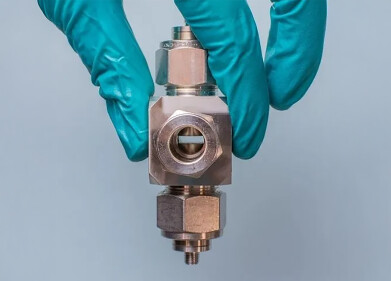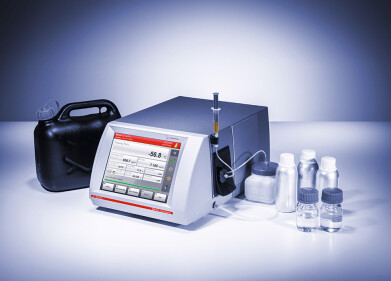Analytical Instrumentation
Chlorine Determination in Petro Matrices
Feb 04 2014
Offshore-produced oil contains considerable chlorine contents, which adversely affect the transportation and refining process. High temperature oxidation followed by coulometric titration is the ideal technique to determine this parameter but suffers from incomplete combustion, escalating with the sample complexity. But the intelligent flame sensor technology of multi EA 5000, from Analytik Jena AG (Germany), automatically takes the varied combustion behaviors of samples and different quantities into account, which leads to complete oxidation, small variations, less need for replicates, and a distinct reduction of maintenance requirements. Besides, it is twice as fast as common systems, allows the user to calibrate the system independently of the sample matrix, and ensures automated analysis even of unknown samples.
Flame sensor technology - Your advantages at a glance:
A single method for sample matrices with the same state of aggregation, Matrix-dependent adjustment of process parameters is now redundant, No prior knowledge of the combustion behavior of the samples required, No time-consuming method development, Uniquely high sample quantities, A guaranteed quantitative sample decomposition, no more soot formation in systems, Improved precision thanks to complete oxidation, Minimised effects of sample matrix and a Clearly reduced maintenance effort.
Digital Edition
PIN 25.5 Oct/Nov 2024
November 2024
Analytical Instrumentation - Picturing Viscosity – How Can a Viscometer or a Rheometer Benefit You? - Sustainable Grease Formulations: Evaluating Key Performance Parameters and Testing Method...
View all digital editions
Events
Nov 27 2024 Istanbul, Turkey
Biogas Convention & Trade Fair 2024
Nov 27 2024 Hanover, Germany
Dec 03 2024 Dusseldorf, Germany
Dec 08 2024 Anaheim, CA, USA
Turkey & Black Sea Oil and Gas
Dec 11 2024 Istanbul, Turkey



















